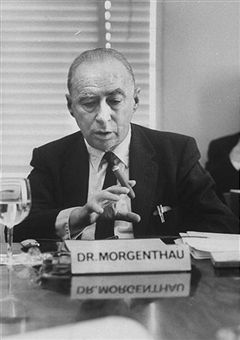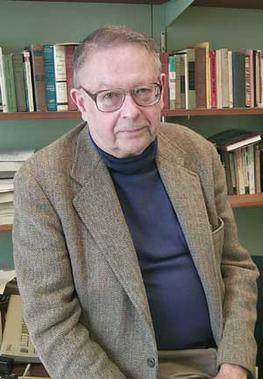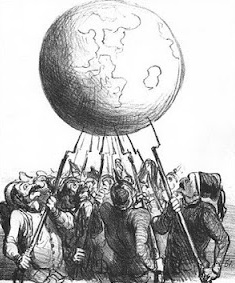Neorealism or structural realism is a theory of international relations that emphasizes the role of power politics in international relations, sees competition and conflict as enduring features and sees limited potential for cooperation. The anarchic state of the international system means that states cannot be certain of other states' intentions and their security, thus prompting them to engage in power politics.

International relations (IR) are the interactions among sovereign states. The scientific study of those interactions is also referred to as international studies, international politics, or international affairs. In a broader sense, the study of IR, in addition to multilateral relations, concerns all activities among states—such as war, diplomacy, trade, and foreign policy—as well as relations with and among other international actors, such as intergovernmental organizations (IGOs), international nongovernmental organizations (INGOs), international legal bodies, and multinational corporations (MNCs). There are several schools of thought within IR, of which the most prominent are realism, liberalism, constructivism, and rationalism.
International relations theory is the study of international relations (IR) from a theoretical perspective. It seeks to explain behaviors and outcomes in international politics. The four most prominent schools of thought are realism, liberalism, constructivism, and rational choice. Whereas realism and liberalism make broad and specific predictions about international relations, constructivism and rational choice are methodological approaches that focus on certain types of social explanation for phenomena.

Hans Joachim Morgenthau was a German-American jurist and political scientist who was one of the major 20th-century figures in the study of international relations. Morgenthau's works belong to the tradition of realism in international relations theory; he is usually considered among the most influential realists of the post-World War II period. Morgenthau made landmark contributions to international relations theory and the study of international law. His Politics Among Nations, first published in 1948, went through five editions during his lifetime and was widely adopted as a textbook in U.S. universities. While Morgenthau emphasized the centrality of power and "the national interest," the subtitle of Politics Among Nations—"the struggle for power and peace"—indicates his concern not only with the struggle for power but also with the ways in which it is limited by ethical and legal norms.

John Joseph Mearsheimer is an American political scientist and international relations scholar who belongs to the realist school of thought. He is the R. Wendell Harrison Distinguished Service Professor at the University of Chicago.
The concept of balancing derives from the balance of power theory, the most influential theory from the realist school of thought, which assumes that a formation of hegemony in a multistate system is unattainable since hegemony is perceived as a threat by other states, causing them to engage in balancing against a potential hegemon.

Kenneth Neal Waltz was an American political scientist who was a member of the faculty at both the University of California, Berkeley and Columbia University and one of the most prominent scholars in the field of international relations. He was a veteran of both World War II and the Korean War.
In international relations, the security dilemma is when the increase in one state's security leads other states to fear for their own security. Consequently, security-increasing measures can lead to tensions, escalation or conflict with one or more other parties, producing an outcome which no party truly desires; a political instance of the prisoner's dilemma.

Realism, a school of thought in international relations theory, is a theoretical framework that views world politics as an enduring competition among self-interested states vying for power and positioning within an anarchic global system devoid of a centralized authority. It centers on states as rational primary actors navigating a system shaped by power politics, national interest, and a pursuit of security and self-preservation.
Polarity in international relations is any of the various ways in which power is distributed within the international system. It describes the nature of the international system at any given period of time. One generally distinguishes three types of systems: unipolarity, bipolarity, and multipolarity for three or more centers of power. The type of system is completely dependent on the distribution of power and influence of states in a region or globally.
In international relations (IR), constructivism is a social theory that asserts that significant aspects of international relations are shaped by ideational factors. The most important ideational factors are those that are collectively held; these collectively held beliefs construct the interests and identities of actors.
Offensive realism is a structural theory in international relations that belongs to the neorealist school of thought and was put forward by the political scholar John Mearsheimer in response to defensive realism. Offensive realism holds that the anarchic nature of the international system is responsible for the promotion of aggressive state behavior in international politics. The theory fundamentally differs from defensive realism by depicting great powers as power-maximizing revisionists privileging buck-passing and self-promotion over balancing strategies in their consistent aim to dominate the international system. The theory brings important alternative contributions for the study and understanding of international relations but remains the subject of criticism.
In international relations theory, the concept of anarchy is the idea that the world lacks any supreme authority or sovereignty. In an anarchic state, there is no hierarchically superior, coercive power that can resolve disputes, enforce law, or order the system of international politics. In international relations, anarchy is widely accepted as the starting point for international relations theory.

The balance of power theory in international relations suggests that states may secure their survival by preventing any one state from gaining enough military power to dominate all others. If one state becomes much stronger, the theory predicts it will take advantage of its weaker neighbors, thereby driving them to unite in a defensive coalition. Some realists maintain that a balance-of-power system is more stable than one with a dominant state, as aggression is unprofitable when there is equilibrium of power between rival coalitions.
The English School of international relations theory maintains that there is a 'society of states' at the international level, despite the condition of anarchy. The English school stands for the conviction that ideas, rather than simply material capabilities, shape the conduct of international politics, and therefore deserve analysis and critique. In this sense it is similar to constructivism, though the English School has its roots more in world history, international law and political theory, and is more open to normative approaches than is generally the case with constructivism.
Defensive neorealism is a structural theory in international relations that is derived from the school of neorealism. The theory finds its foundation in the political scientist Kenneth Waltz's Theory of International Politics in which Waltz argues that the anarchical structure of the international system encourages states to maintain moderate and reserved policies to attain national security. In contrast, offensive realism assumes that states seek to maximize their power and influence to achieve security through domination and hegemony. Defensive neorealism asserts that aggressive expansion as promoted by offensive neorealists upsets the tendency of states to conform to the balance of power theory, thereby decreasing the primary objective of the state, which they argue to be the ensuring of its security. Defensive realism denies neither the reality of interstate conflict or that incentives for state expansion exist, but it contends that those incentives are sporadic, rather than endemic. Defensive neorealism points towards "structural modifiers," such as the security dilemma and geography, and elite beliefs and perceptions to explain the outbreak of conflict.

The Tragedy of Great Power Politics is a book by the American scholar John Mearsheimer on the subject of international relations theory published by W.W. Norton & Company in 2001. Mearsheimer explains and argues for his theory of "offensive realism" by stating its key assumptions, evolution from early realist theory, and its predictive capability. An article adapted from the book had previously been published by Foreign Affairs.
Liberal institutionalism is a theory of international relations that holds that international cooperation between states is feasible and sustainable, and that such cooperation can reduce conflict and competition. Neoliberalism is a revised version of liberalism. Alongside neorealism, liberal institutionalism is one of the two most influential contemporary approaches to international relations.

Classical realism is an international relations theory from the realist school of thought. Realism makes the following assumptions: states are the main actors in the international relations system, there is no supranational international authority, states act in their own self-interest, and states want power for self-preservation. Classical realism differs from other forms of realism in that it places specific emphasis on human nature and domestic politics as the key factor in explaining state behavior and the causes of inter-state conflict. Classical realist theory adopts a pessimistic view of human nature and argues that humans are not inherently benevolent but instead they are self-interested and act out of fear or aggression. Furthermore, it emphasizes that this human nature is reflected by states in international politics due to international anarchy.
Charles Louis Glaser is a scholar of international relations theory, known for his work on defensive realism, as well as nuclear strategy. He is the founding director of the Institute for Security and Conflict Studies at the George Washington University's Elliott School of International Affairs, as well as a professor of political science and international affairs. His best-known book, Rational Theory of International Politics: The Logic of Competition and Cooperation received an Honorable Mention for 2011 Best Book from the International Security Studies Section of the International Studies Association.









